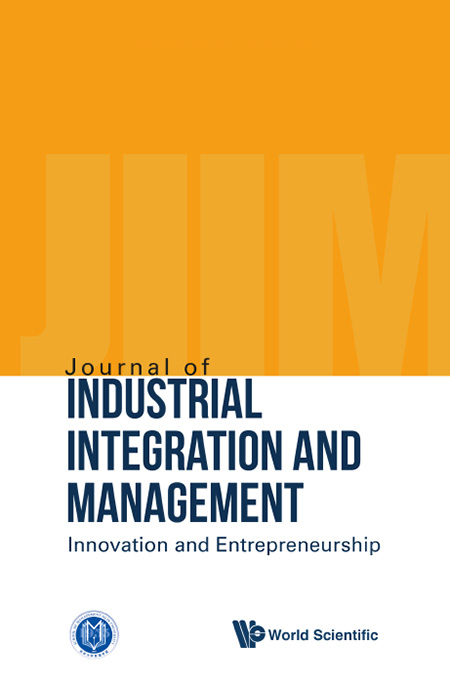虚拟现实(VR)技术在心脏病学中的应用综述
IF 3.3
Q2 MANAGEMENT
Journal of Industrial Integration and Management-Innovation and Entrepreneurship
Pub Date : 2021-03-12
DOI:10.1142/S2424862221300015
引用次数: 7
摘要
虚拟现实(VR)在心脏病学中的应用可以创造增强效果,从而提高相关计划、治疗和手术的质量。需要研究该技术在心脏病学领域的不同应用。我们通过详细的文献计量分析研究了关于虚拟现实及其在心脏病学中的应用的研究论文。该研究确定了在心脏病学中正确实施该技术的五个重要步骤。使用这项技术会面临一些挑战,但也会带来一些好处;因此,作者考虑广泛的研究和开发。本研究还确定了10个主要的VR技术在心脏病学中的应用,并提供了简要的描述。这项创新技术帮助心脏外科医生有效地进行复杂的心脏手术。因此,虚拟现实应用具有改善决策的潜力,这有助于拯救人类的生命。VR在外科手术的发展中起着重要的作用。该技术提供全彩色的3D心脏模型信息,有助于分析整体心脏叶片、阻塞和血流。在这种数字技术的帮助下,外科医生可以提高心脏手术的准确性,他可以模拟手术。外科医生可以在虚拟环境中对虚拟病人进行手术。这项技术的独特目的是在手术前根据具体情况进行练习。心脏病专家还可以检查心脏内外壁层的正常状态。因此,通过使用这种3D信息,外科医生现在可以在没有任何身体接触的情况下与心脏数据/信息进行交互。这项技术为改善心脏手术和心血管治疗的发展提供了新的机会,以改善患者的预后。本文章由计算机程序翻译,如有差异,请以英文原文为准。
Virtual Reality (VR) Applications in Cardiology: A Review
Virtual reality (VR) has applications in cardiology to create enhancement, thereby improving the quality of associated planning, treatment and surgery. The need is to study different applications of this technology in the field of cardiology. We have studied research papers on VR and its applications in cardiology through a detailed bibliometric analysis. The study identified five significant steps for proper implementation of this technology in cardiology. Some challenges are to be undertaken by using this technology, and they can provide some benefits; thus, authors contemplate extensive research and development. This study also identifies 10 major VR technology applications in cardiology and provided a brief description. This innovative technology helps a heart surgeon to perform complex heart surgery effectively. Thus, VR applications have the potential for improving decision-making, which helps save human life. VR plays a significant role in the development of a surgical procedure. This technology undertakes 3D heart model information in full colour, which helps to analyze the overall heart vane, blockage and blood flow. With the help of this digital technology, a surgeon can improve the accuracy of heart surgery, and he can simulate the surgery. A surgeon can undertake surgery in a virtual environment on a virtual patient. The unique purpose of this technology is to practice pre-operatively on the specific circumstance. A cardiologist can also check the proper status of inner and outer heart wall layer. Thus, by using this 3D information, the surgeon can now interact with heart data/information without any physical touch. This technology opens a new opportunity to improve the heart surgery and development in cardiovascular treatment to improve patient outcome.
求助全文
通过发布文献求助,成功后即可免费获取论文全文。
去求助
来源期刊
CiteScore
17.00
自引率
16.70%
发文量
31
期刊介绍:
The Journal of Industrial Integration and Management: Innovation & Entrepreneurship concentrates on the technological innovation and entrepreneurship within the ongoing transition toward industrial integration and informatization. This journal strives to offer insights into challenges, issues, and solutions associated with industrial integration and informatization, providing an interdisciplinary platform for researchers, practitioners, and policymakers to engage in discussions from the perspectives of innovation and entrepreneurship.
Welcoming contributions, The Journal of Industrial Integration and Management: Innovation & Entrepreneurship seeks papers addressing innovation and entrepreneurship in the context of industrial integration and informatization. The journal embraces empirical research, case study methods, and techniques derived from mathematical sciences, computer science, manufacturing engineering, and industrial integration-centric engineering management.

 求助内容:
求助内容: 应助结果提醒方式:
应助结果提醒方式:


